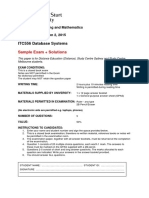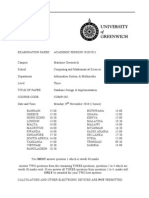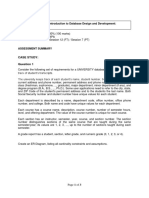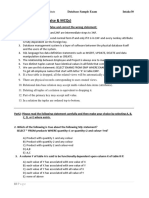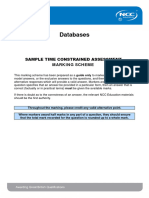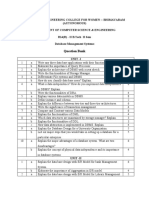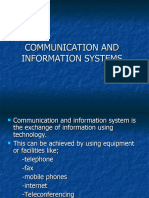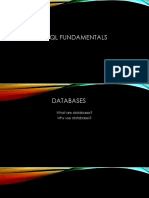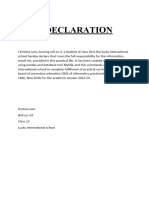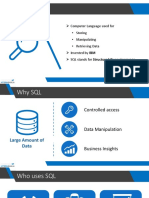0% found this document useful (0 votes)
39 views6 pagesAss Exam Database Design & Development 2014
The document is an assessment paper for Database Design and Development at Botswana Accountancy College, dated September 25, 2014. It includes instructions for candidates, a series of questions covering SQL concepts, database management functions, and business rules for employee management. The assessment requires candidates to demonstrate their understanding of database architecture, SQL queries, and entity-relationship diagrams.
Uploaded by
abednigo titusCopyright
© © All Rights Reserved
We take content rights seriously. If you suspect this is your content, claim it here.
Available Formats
Download as PDF, TXT or read online on Scribd
0% found this document useful (0 votes)
39 views6 pagesAss Exam Database Design & Development 2014
The document is an assessment paper for Database Design and Development at Botswana Accountancy College, dated September 25, 2014. It includes instructions for candidates, a series of questions covering SQL concepts, database management functions, and business rules for employee management. The assessment requires candidates to demonstrate their understanding of database architecture, SQL queries, and entity-relationship diagrams.
Uploaded by
abednigo titusCopyright
© © All Rights Reserved
We take content rights seriously. If you suspect this is your content, claim it here.
Available Formats
Download as PDF, TXT or read online on Scribd
/ 6











